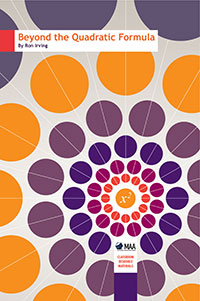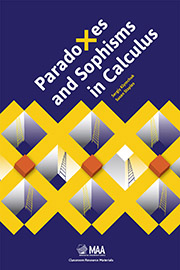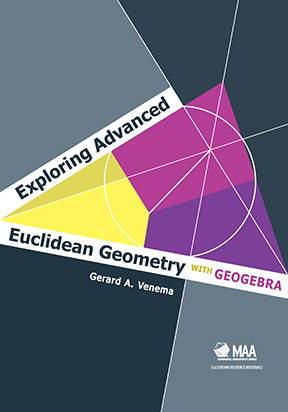 Mark Hunacek reviews Beyond the Quadratic Formula by Ron Irving as part of MAA Reviews.
Mark Hunacek reviews Beyond the Quadratic Formula by Ron Irving as part of MAA Reviews.
"Combining mathematics and history, this text tells, in a way accessible to beginning students, the interesting story of how formulas came to be discovered for the roots of third and fourth degree polynomials, and why nobody will discover corresponding formulas for fifth (or higher) degree polynomials.
Specifically, the book begins with an introductory chapter on polynomials (treated informally as formal expressions rather than rigorously defined), and is followed by a chapter on quadratic equations, in which the familiar quadratic formula is derived from several different points of view. The study of cubic equations begins in the next chapter, which discusses Cardano’s formula. One of the more amusing aspects of Cardano’s formula is that even nice, simple numbers can wind up being represented by horrendous sums of cube roots of expressions involving square roots; lots of examples are provided in the book. "
Read the full review here.



